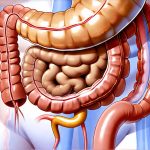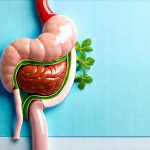Rapid weight loss, frequently pursued for aesthetic goals, improved health markers, or preparation for events, often comes with a physiological price tag – disruption to the digestive system. While shedding excess weight is generally beneficial, the speed at which it’s done significantly impacts how our bodies cope and adapt. Many individuals embarking on aggressive diet plans experience a range of gastrointestinal issues, from mild discomfort to debilitating symptoms that can derail their efforts and even necessitate medical attention. Understanding why these disruptions occur, what specific problems to anticipate, and proactive strategies for mitigating them is crucial for anyone undertaking significant weight loss. This isn’t about discouraging rapid weight loss; it’s about navigating it safely and intelligently.
The digestive system is remarkably adaptable, but it thrives on consistency. Sudden changes in dietary intake – drastically reduced calories, elimination of food groups, or a shift to highly processed ‘diet’ foods – throw this delicate balance off kilter. The gut microbiome, the complex ecosystem of bacteria residing within our intestines, is particularly sensitive to these fluctuations and plays a central role in digestion, nutrient absorption, and even immune function. Moreover, rapid fat loss can alter gastric emptying rates, bile production, and intestinal motility, all contributing to a cascade of potential problems. It’s essential to remember that the digestive system isn’t merely a passive processor; it’s an active participant in overall health, and its disruption has far-reaching consequences beyond just discomfort. If you suspect significant issues, consider digestive tests to help diagnose the problem.
Common Gastrointestinal Symptoms During Rapid Weight Loss
A multitude of gastrointestinal symptoms can arise during phases of rapid weight loss. These vary considerably in severity, influenced by factors like the method of weight loss (e.g., very low calorie diets vs. increased exercise), pre-existing digestive conditions, and individual sensitivity. – Blooting is extremely common, often stemming from changes in gut bacteria or reduced fiber intake. – Diarrhea can occur due to malabsorption of fats or sugars, or as a result of intestinal hypermotility (increased movement). – Constipation, conversely, may develop if dietary fiber is drastically cut back or hydration is insufficient. – Nausea and vomiting are less frequent but can signal extreme stress on the digestive system, particularly with very restrictive diets. – Heartburn and acid reflux might worsen as stomach emptying slows down or pressure increases within the abdomen.
The underlying mechanisms driving these symptoms often intertwine. For example, a low-fat diet, while effective for weight loss, can impair bile production. Bile is essential for fat digestion, and its deficiency leads to malabsorption, potentially causing diarrhea and abdominal cramping. Similarly, drastically reducing carbohydrate intake – prevalent in ketogenic diets – can disrupt the gut microbiome, favoring bacteria that produce gas and leading to bloating. It’s important to recognize these aren’t necessarily signs of failure; they are often physiological responses to significant change. Ignoring them, however, is unwise, as chronic digestive distress can hinder progress and impact quality of life. If you experience both weight loss and gut pain, screening options may be helpful.
Furthermore, rapid weight loss frequently involves alterations in eating behavior itself. Skipping meals, severely restricting portion sizes, or consuming food too quickly all place additional strain on the digestive system. The body isn’t given adequate time to process food properly, leading to indigestion and discomfort. Mindful eating – paying attention to hunger cues, chewing thoroughly, and savoring each bite – can be a powerful tool for mitigating these effects. It’s about respecting your body’s natural rhythms rather than forcing it into an unnatural state of deprivation. Eating during stress is another factor that may impact digestion.
Addressing Digestive Distress: Dietary Strategies
Dietary adjustments are often the first line of defense against digestive issues during rapid weight loss. – Prioritize fiber intake: Even when reducing overall calories, ensure adequate fiber consumption from sources like non-starchy vegetables, low-sugar fruits, and whole grains (if tolerated). Fiber adds bulk to stool, promotes regularity, and supports a healthy gut microbiome. However, introduce fiber gradually to avoid exacerbating bloating. – Stay hydrated: Water is crucial for digestion and helps prevent constipation. Aim for at least eight glasses of water per day, increasing intake if experiencing diarrhea or vomiting. – Focus on easily digestible foods: During periods of heightened digestive sensitivity, opt for bland, low-fat options like boiled chicken, rice, bananas, and toast (the BRAT diet). Avoid spicy foods, caffeine, alcohol, and high-fat meals that can further irritate the gut.
Beyond these basics, consider incorporating probiotic-rich foods into your diet. Yogurt with live cultures, kefir, sauerkraut, kimchi, and kombucha can help restore balance to the gut microbiome. Similarly, prebiotic foods – onions, garlic, asparagus, bananas – provide nourishment for beneficial bacteria. It’s important to note that probiotic supplements aren’t always necessary; a well-rounded diet is often sufficient. If considering supplementation, consult with a healthcare professional. You might also want to explore foods to choose based on your individual needs.
Finally, pay close attention to food intolerances or sensitivities. Rapid weight loss can sometimes exacerbate underlying sensitivities, making them more noticeable. Keeping a food diary and tracking symptoms can help identify trigger foods that need to be eliminated or reduced. Elimination diets, guided by a registered dietitian, can be particularly helpful in identifying these culprits.
The Role of Meal Timing & Portion Control
Meal timing and portion control play a significant role in minimizing digestive discomfort. – Smaller, more frequent meals: Instead of three large meals, consider spreading your daily caloric intake across five or six smaller meals. This reduces the workload on the digestive system and prevents feelings of overwhelming fullness. – Chew food thoroughly: Proper chewing breaks down food into smaller particles, making it easier to digest. It also stimulates saliva production, which contains enzymes that aid in digestion.
Rapidly consuming large volumes of food overwhelms the stomach and intestines, leading to indigestion and bloating. Eating slowly allows the body to signal fullness effectively, preventing overeating. – Avoid eating close to bedtime: Lying down immediately after a meal can increase the risk of heartburn and acid reflux. Allow at least two to three hours between your last meal and bedtime. For those with gallbladder issues, safe weight loss strategies are crucial.
When to Seek Professional Help
While many digestive symptoms associated with rapid weight loss are manageable with dietary adjustments, certain signs warrant medical attention. – Persistent diarrhea or vomiting: Prolonged fluid loss can lead to dehydration and electrolyte imbalances. – Severe abdominal pain: This could indicate a more serious underlying condition. – Blood in stool or vomit: Requires immediate medical evaluation. – Unexplained weight gain: Could signal an issue with nutrient absorption or metabolic function.
If you have pre-existing digestive conditions like irritable bowel syndrome (IBS) or Crohn’s disease, it’s crucial to consult with your healthcare provider before embarking on a rapid weight loss plan. They can help tailor a program that minimizes the risk of exacerbating your condition and provide guidance on managing any associated symptoms. Self-treating serious digestive issues is never advisable. A qualified healthcare professional can accurately diagnose the problem and recommend appropriate treatment options, potentially including medication or further testing. If you are experiencing stomach pain during pregnancy, recognizing and managing it is important for both your health and the baby’s. Remember, prioritizing health is paramount, even when pursuing weight loss goals. And if you’re experiencing stomach flu symptoms, remember foods to avoid.


















